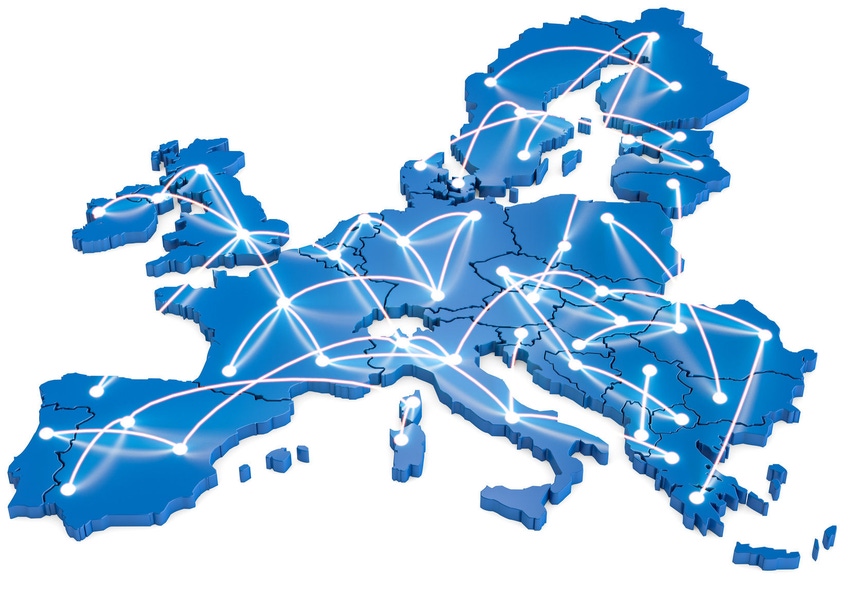The CEOs of every major Europe-based operator have written to EU policy makers to urge them to provide more help.
November 29, 2021

The CEOs of every major Europe-based operator have written to EU policy makers to urge them to provide more help.
‘Europe needs to translate its digital ambitions into concrete actions,’ commences the open letter published by ETNO, the Euro telecoms trade association. This approach is so well-trodden by this stage that it barely seems worth reporting on. Still, when that many telecoms CEOs put their signature to something, no matter how many times they’ve done similar in the past, it’s our onerous duty to tell you about it.
“We, the CEOs of Europe’s leading telecommunication companies, call on EU policymakers to closely align Europe’s digital ambitions with a supportive policy and regulatory ecosystem,” it continued, indicating that at least they’re not asking for public funds this time. Having said that, the letter then went on to stress how they’re collectively investing over €50 billion a year in their networks, as if they’re doing so out of the kindness of their hearts. Inevitably the letter then talked up their green credentials.
So what form should this supportive policy and regulatory ecosystem take? Here are the three demands, reproduced in full:
A clear alignment between European digital leadership ambitions and competition policy. The positive signals on industry collaboration – ranging from network sharing to IPCEI projects and other forms of cooperation – are important steps forward and should be reinforced. Building scale in the telecoms sector remains a priority, inside markets as well as across markets: this is in the strategic interest of the EU and its citizens.
Strong political buy in to ensure that regulatory action fosters investment in gigabit networks, which will require €300bn additional investment. Regulation must fully reflect market realities, now and in the future. Namely, that telecom operators compete face-to-face with services by big tech, in the context of vibrant markets. High spectrum prices and auctions that artificially force unsustainable entrants into the market must end. Recent ideas to alter a European Commission proposal by extending retail price regulation to international calls – a competitive market where many free alternatives exist – are at odds with the Digital Decade targets: we estimate that they would forcibly remove over €2bn revenues from the sector in a 4 year period, which is equivalent to 2.5% of the sector’s yearly investment capacity for mobile infrastructure. In addition, the on-going policy work on reducing the cost of roll-out is of essence and should proceed speedily.
A renewed effort to rebalance the relationship between global technology giants and the European digital ecosystem. Horizontal measures such as the Digital Markets Act play a crucial role and, for this reason, we firmly support them. In addition, we must also consider important sector-specific issues. Large and increasing part of network traffic is generated and monetized by big tech platforms, but it requires continuous, intensive network investment and planning by the telecommunications sector. This model – which enables EU citizens to enjoy the fruits of the digital transformation – can only be sustainable if such big tech platforms also contribute fairly to network costs. Furthermore, we must ensure that new industrial strategies allow European players – including telcos – to compete successfully in global data spaces, so we can develop a European data economy that is built on true European values.
If we had to summarise the three points, it would be as follows:
Let us collaborate more
Let us charge more for international calls
Make US tech giants give us money
The first two are relatively minor regulatory tweaks but it would be interesting to see how the EU would go about making big tech platforms ‘contribute fairly to network costs’. Having said that, the global political and regulatory environment is becoming increasingly hostile to big tech, so maybe this is a good time to make such a request.
Nonetheless it seems that rarely a month goes by without some group of European operators or other having a public moan about their lot in life and demanding someone else do something about it. On one level they’re entitled to ask the EU to back up its digital rhetoric with concrete action, but on the other they risk diluting their message by making it so incessantly.
About the Author(s)
You May Also Like








.png?width=300&auto=webp&quality=80&disable=upscale)


_1.jpg?width=300&auto=webp&quality=80&disable=upscale)


.png?width=800&auto=webp&quality=80&disable=upscale)